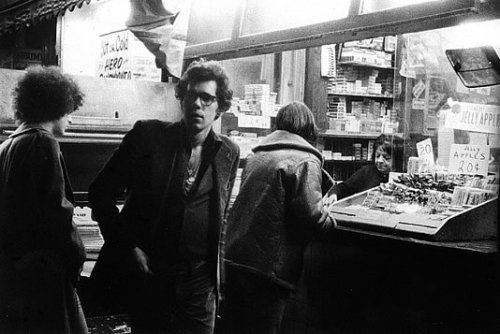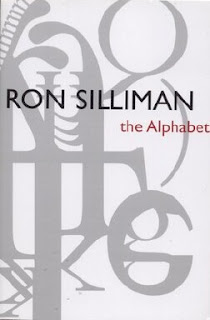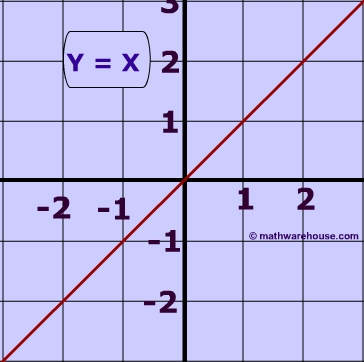Welcome to our poetry workshop! I hope that the next ten weeks will be a productive and exciting time for all of us.
Given my past experience with workshops of all sorts, I've come to realize that the truest value of the time we'll spend together isn't so much the work that we'll do in and of itself — the poems we'll write, the feedback we'll give and receive — but rather the relationships that will begin here and carry on into the future, as well as the habits we'll develop, the objective self-assessment we'll learn to perform, the things we've never tried before that we'll do here because we're forced to. Towards that end, I've tried to structure this workshop so that you'll get the most out of our limited time, but also be well-set to carry on independently after the quarter is over.
In an ideal world, this workshop would be twice as long and half as many students in it. Because that's not the case, we'll try to do our best to ensure that everyone is able to have as many opportunities as possible to receive feedback on their work, and in addition to formal workshop time, there will be plenty of exercises for you to take part in over the course of the term, receiving more informal feedback from me as well as your classmates.
We'll have to run a tight ship in regards to scheduling this term, therefore discussions of student work will be timed and limits will be strictly enforced (though it pains me to do so). If we keep on schedule, we should have enough time for all 20 students to have a poem workshopped for 3 periods of 15 minutes each this quarter — and with this time limit, we'll be sure to have extra time to discuss readings, exercises and our final projects, but more importantly, should school be canceled due to inclement weather (something that's been inevitable over the past few winters), we should be able to absorb those missed workshop periods without too much hassle.
It should come as no surprise to you that your final grade will be largely dependent on the quality of the work you produce this term, and here are some of the assignments that will factor into that:
- your response to our initial workshop questionnaire
- the three poems you present during your workshop sessions
- the poems you present in response to our various supplemental writing prompts
- your two close reading responses
- your contributions to our journal database
- your final portfolio, which will consist of 5-7 poems with revisions and a self-assessment
- the chapbook that you'll create and distribute at the end of the quarter
Because everyone comes to our workshop at different points in his or her writing life, there's no objective standard applied when evaluating student work. Instead, what I'll aim to measure is your openness to the workshop environment — i.e. your willingness to devote serious attention to the assignments, be self-critical and accept constructive criticism, and above all demonstrate a marked development throughout the course of the term. Moreover, your efforts towards your own work aren't the only reason why you're here: to be a good citizen of this workshop, you'll spend almost as much energy addressing the work of your peers as you do your own. Specifically, here are some of the things you'll need to do for your classmates:
- you'll provide a thoughtful and constructive critique of all poems up for workshop on a given day, making use of the comments function in Word (select text, then go under Insert > Add Comment); after you add your first, a comments toolbar will appear) to add marginalia, notes, suggestions, etc. as well as writing up a more substantive response to the poem approximately one page in length.
- you'll serve as "lead reviewer" for the workshops of three of your peers' poems — this means that you'll a) write a longer, more detailed critique of the poem being discussed (approximately twice as long as what you'll be expected to write normally) and b) start our discussion of that poem by speaking to the poem's strengths and weaknesses for 2-3 minutes.
- you'll show up to class each day prepared to actively take part in our class discussions
Finally, a word about aesthetics: each of us is continually developing our own idiosyncratic poetics, and the diversity of our perspectives should be a strength for our workshop, however, an important part of constructive criticism is making an honest effort to understand the author's intentions and work within that context, and the same goes for form, scale, etc. If your tastes run to the traditional side, but you're responding to the experimental work of a classmate, it's probably not the most helpful advice to casually suggest that she implement strict iambic pentameter; likewise, suggesting a long, rambling addition to a poem working in a minimalist fashion probably won't help much. At the same time, there may be cases where you feel that radical changes are necessary, and if you can explain your convictions behind these beliefs, you may very well be doing your peer a great favor.
You'll be expected to meet the following deadlines in regards to the workshop process:
- poems being workshopped on a Tuesday should be posted to the appropriate Blackboard forum no later than the previous Saturday
- poems being workshopped on a Thursday should be posted to the appropriate forum no later than the previous Monday
- your marked up copies of the workshop poems should be posted to the appropriate forum by 9:00 AM the morning of the workshop
- poems written in response to one of the supplemental prompts should ideally be posted by the same time
Lateness in regards to any of these deadlines will negatively affect your grade.
Here are a few other important policies:
Attendance and Participation: The importance of both regular attendance and class participation cannot be understated — without both, our workshop will fall apart. In most of the classes I've taught at UC, most students have taken our collaborative work seriously and attendance hasn't been an issue. Ideally, I'd say that you shouldn't miss any classes this term, but I understand that illness, the weather and other contingencies are likely to intervene, therefore I think that missing one or two classes (if necessary) is acceptable. However, students who miss more than four classes will automatically fail the course. This is one more absence than I usually permit, due to it being the winter quarter, and think for a second about what this represents: if you miss five classes out of the eighteen that we'll have after today, you'll have lost almost a third of the quarter.
Communications: because of the strengths and weaknesses of each component, we'll use a variety of methods to communicate this term. Because I believe in open pedagogy, we'll be using this blog for the majority of our course announcements and assignments — please use the links above to subscribe via e-mail or RSS, or if you're on Blogger, "follow" this blog so that you'll be kept up to date. Last term I experimented with using Facebook for more informal class communications and conversations and was very happy with the results, so please be sure to join this group as well (there's a link on the sidebar also). Finally, Blackboard is really dreadful but it does offer a secure and confidential venue for easily posting documents, so we'll be making use of our class forums to share poems, critiques, etc.
Communications (2): Please make use of my posted office hours, the time before and after class, e-mail and/or Facebook to discuss your performance in the workshop, pose questions you might have, etc. If you're having trouble making a contribution, feel that you're doing poorly, or just not getting into the spirit of the course, it's better to ask for guidance sooner rather than later. Unofficially, you should meet with me at least once during the quarter.
Technology: In theory, technology is a wonderful thing, but in the classroom, it can be a distraction. Please make sure that your cell phone is turned off (or at the very least in silent mode) before class begins, and keep it in your bag throughout. Texting during class will not be tolerated. Laptops may only be used by students with appropriate paperwork from Disability Services explaining its necessity—otherwise, a notebook or binder will have to suffice (even if it's terribly old-world).
Special Needs Statement: If you have any special needs related to your participation and performance in this course, please speak to me as soon as possible. In consultation with Disability Services, we can make reasonable provisions to ensure your ability to succeed in this class and meet its goals.












